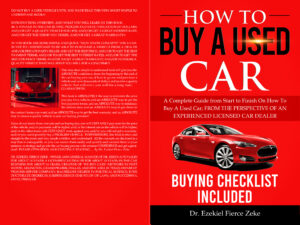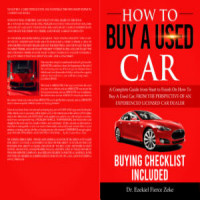What to Expect When Negotiating a Used Car

Strong 8k brings an ultra-HD IPTV experience to your living room and your pocket.
Negotiating a used car isn’t just a transaction—it’s a dance between the buyer’s budget and the seller’s bottom line. If you’ve ever watched someone haggle at a flea market and thought, “I wish I could do that with a car,” well, you can. And you should. At How to Buy a Used Car, we’re here to break down the process so you walk into that dealership (or driveway) with more confidence than a cat walking across a piano.
The Prelude: Knowledge Is Horsepower
Before you even think about showing up for a test drive, understand this: the negotiation starts before you even talk numbers. Arm yourself with facts about the car’s market value. Use sites like Kelley Blue Book, Edmunds, or our very own tools at How to Buy a Used Car to determine a fair price.
Know what similar vehicles are selling for in your area. This gives you leverage—if the seller knows you’ve done your homework, they’re less likely to hit you with that “I’ve had 10 calls today!” line.
Pro Tip: If a seller says they’ve had multiple offers, just smile and say, “I’m the one here with cash.” Works like magic. Or at least like mild sorcery.
Used Car Negotiation Tips That Actually Work
Let’s drop some truth bombs. Here are some essential used car negotiation tips to keep in your back pocket:
Don’t get emotionally attached. Even if the car looks like it drove straight out of your dreams, don’t let the seller see your heart rate spike.
Start low, but not insulting. Offering $5,000 for a $10,000 car won’t just get you laughed at—it might get the door slammed in your face. Be realistic but firm.
Point out flaws tactfully. “I noticed a bit of rust on the wheel well,” is better than, “This thing’s a rust bucket.”
Let silence do the heavy lifting. Say your offer, then zip it. Silence is awkward—but it’s powerful.
Be ready to walk. The strongest negotiation move is walking away. Sometimes, they’ll call you back with a better deal before you hit the parking lot exit.
Common Used Car Pitfalls (and How to Swerve Around Them)
Used cars come with history. Sometimes that history includes a fender-bender, an oil leak, or 47 fast food receipts crammed under the seat. Here are a few common traps buyers fall into:
Skipping the inspection. Always get a pre-purchase inspection from a certified mechanic. Your uncle Joe who “used to change his own oil” doesn’t count.
Ignoring the vehicle history report. If the seller won’t show you a CARFAX or AutoCheck, that’s a red flag waving so hard it should be in the Olympics.
Assuming ‘as-is’ means ‘all-good.’ If the seller uses the phrase “you’re getting a great deal,” but the Check Engine light’s on, run faster than a scared squirrel.
At How to Buy a Used Car, we believe transparency is your best weapon. The more questions you ask, the fewer surprises you’ll find down the road. And let’s face it, nobody likes surprise expenses… except tow truck companies.
Laugh It Off, But Stay Sharp
We get it—negotiating a used car can feel like trying to bargain with a caffeinated auctioneer. It’s stressful. It’s awkward. But that doesn’t mean you can’t have a little fun.
Funny line alert:
Buying a used car is like dating someone with a mysterious past—you’re just hoping the skeletons in the trunk are metaphorical.
Take the pressure off by keeping your tone friendly but firm. Sellers are human too (usually). If you crack a joke or two, it can lighten the mood and lead to a better outcome. Humor disarms, but preparation closes deals.
Promoting Our Mission: How to Buy a Used Car Without Regret
At How to Buy a Used Car, our mission is simple: help you make smart, confident choices with no buyer’s remorse and no midnight Googling “why does my used car smell like crayons?”
Whether you’re buying from a dealership or someone off Craigslist who swears the stereo “only cuts out on Tuesdays,” we’ve got your back. We’ve built guides, checklists, and buyer templates so you know what to say, what to inspect, and what to negotiate—before you ever touch a steering wheel.
Note: IndiBlogHub features both user-submitted and editorial content. We do not verify third-party contributions. Read our Disclaimer and Privacy Policyfor details.


